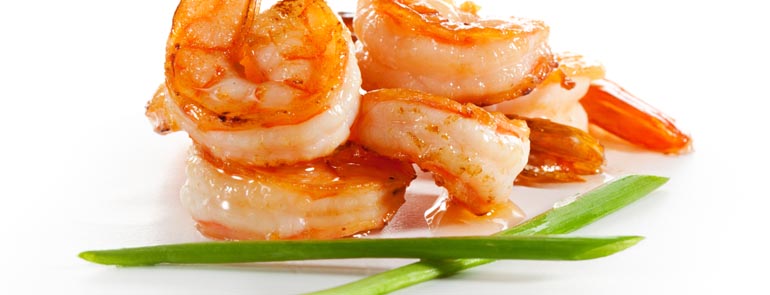Shrimp can get a bad rap for its cholesterol content. Many people with high blood cholesterol fear that including cholesterol-rich foods in their diet will increase the cholesterol levels in their blood.
A: Shrimp, much like eggs, can get a bad rap for its cholesterol content. Many people with high blood cholesterol are advised to limit or avoid cholesterol-rich foods like shrimp in their diets. The current recommendation is to consume no more than 300 mg of dietary cholesterol per day (and no more than 200 mg if you are following a heart healthy diet). If managing your cholesterol through diet is still new to you, the rule of thumb is that any food that comes from an animal (e.g., meat, poultry, seafood, dairy, cheese, eggs, etc.) has cholesterol; however, the amount of cholesterol varies. For instance, one 3 ounce serving of roasted, boneless, skinless chicken breast has about 70 mg of cholesterol, while a 3 ounce serving of steamed shrimp contains about 180 mg of cholesterol.
This doesn’t mean that shrimp can’t be a healthy choice. As with any food, it just means that you should be mindful of how often you are eating shrimp and how much you have.
- Limit yourself to just one serving.
- Pay attention to the preparation method. Avoid ordering shrimp that is deep fried or cooked in lots of butter.
- Trans fats and saturated fats have been shown to raise “bad cholesterol” more than dietary cholesterol. Aim to limit saturated fat intake to no more than 10% of your daily calories (approximately 22 g per day if you are consuming 2000 calories per day) and eliminate trans fats from your diet.
Many of the dietitian-recommended menu choices on HealthyDiningFinder feature shrimp. You’ll be able to access detailed nutrition information, including cholesterol and saturated fat, to help you make the best choices for you and your health goals.

